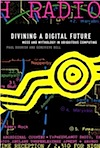Review: Paul Dourish & Genevieve Bell -Divining a digital future (2011)
“In Divining a Digital Future D&B reiterate many arguments made in earlier work, provide them with more flesh, and formulate some future directions for ubicomp. To be sure this is not a bad thing, neither for those who wish to read a book on the current state of affairs in ubicomp, nor for ubicomp researchers who wish to enlarge the scope of their own practice. The book attempts to foster an anthropological sensitivity among its (presumed) CHI readership. Fundamentally, their proposition to approach technology (and urbanism) through an ethnographic lens is highly relevant in my view. Imagine what the future of our cities look would like if it were the sole concern of coders and engineers? Indeed, we should never forget Jane Jacobs’ lesson that livable and lively cities are about people.
I also appreciate their relational view of ubicomp as intricately bound up with the messiness of everyday life, their concern with its multiplicity of forms and shapes, and their attention for fringes (edges, periphery, margins). Important too in my view is that D&B implicitly question the notion of ‘the everyday’. The everyday does not consist of stable pre-given categories (home, mobility, etc.) that can be supplemented with ubicomp. It arises from socio-cultural performances and is continuously negotiated. Still, they could have stated this even more explicitly, because ‘the everyday’ is so often unproblematically assumed as a self-explanatory term in both technology and urban studies.
That being said, D&B’s focus is too much directed inward in my view. D&B dish up insights from urban ethnography, sociology and human geography to a ubicomp audience. The ubicomp crowd may find this refreshing; those more familiar with these ‘soft’ disciplines will already consider such insights well-accepted. As said above, what I feel is lacking from their approach is a clear vision how ubicomp can reciprocate to an understanding of the intricacies of techno-urban practices. What can ethnography and urbanism learn from ubicomp?”




